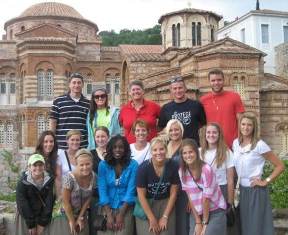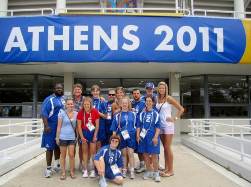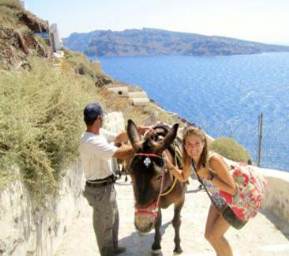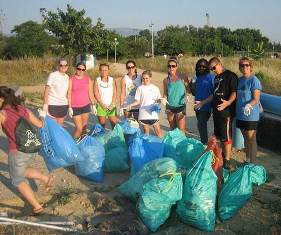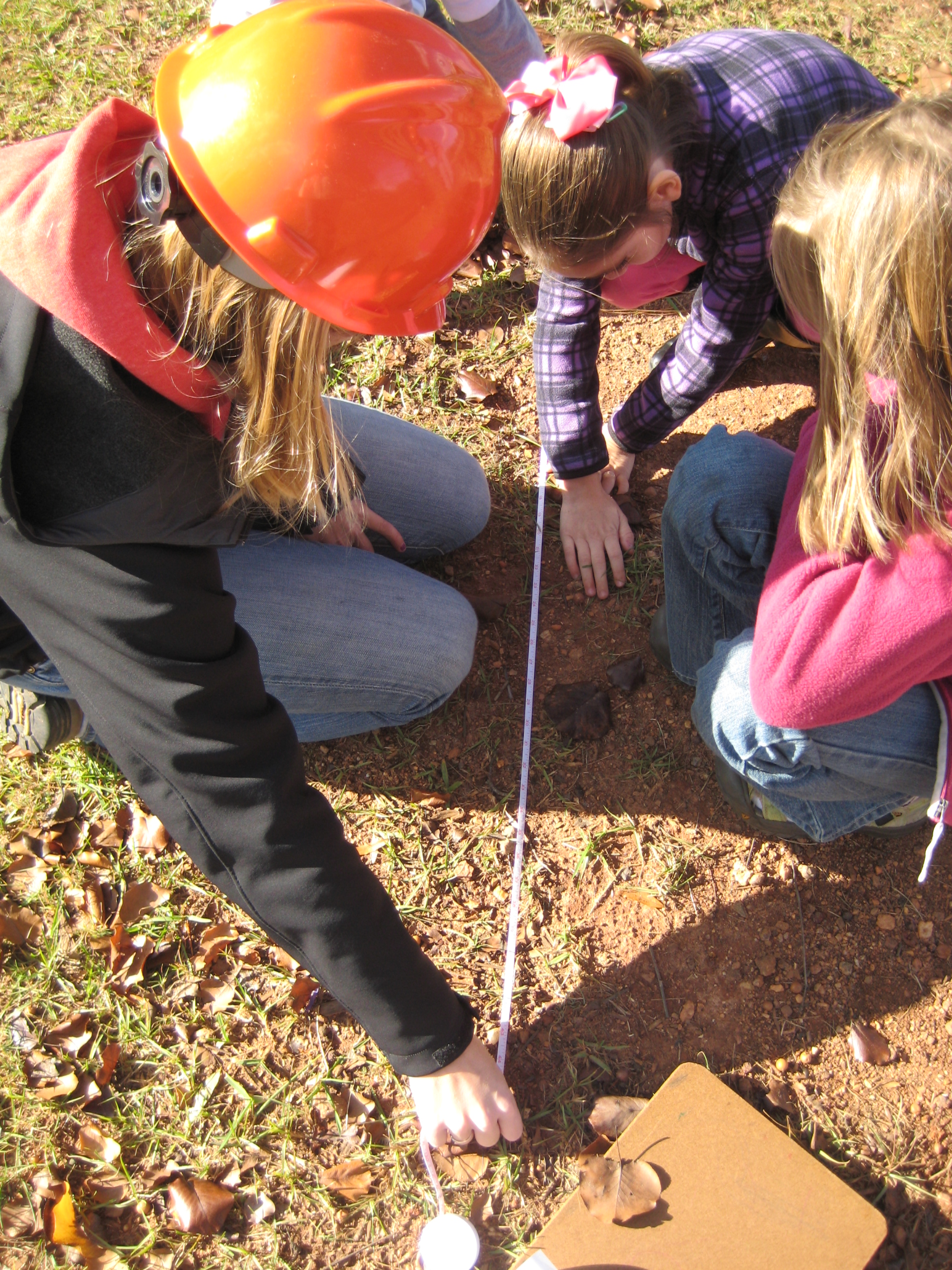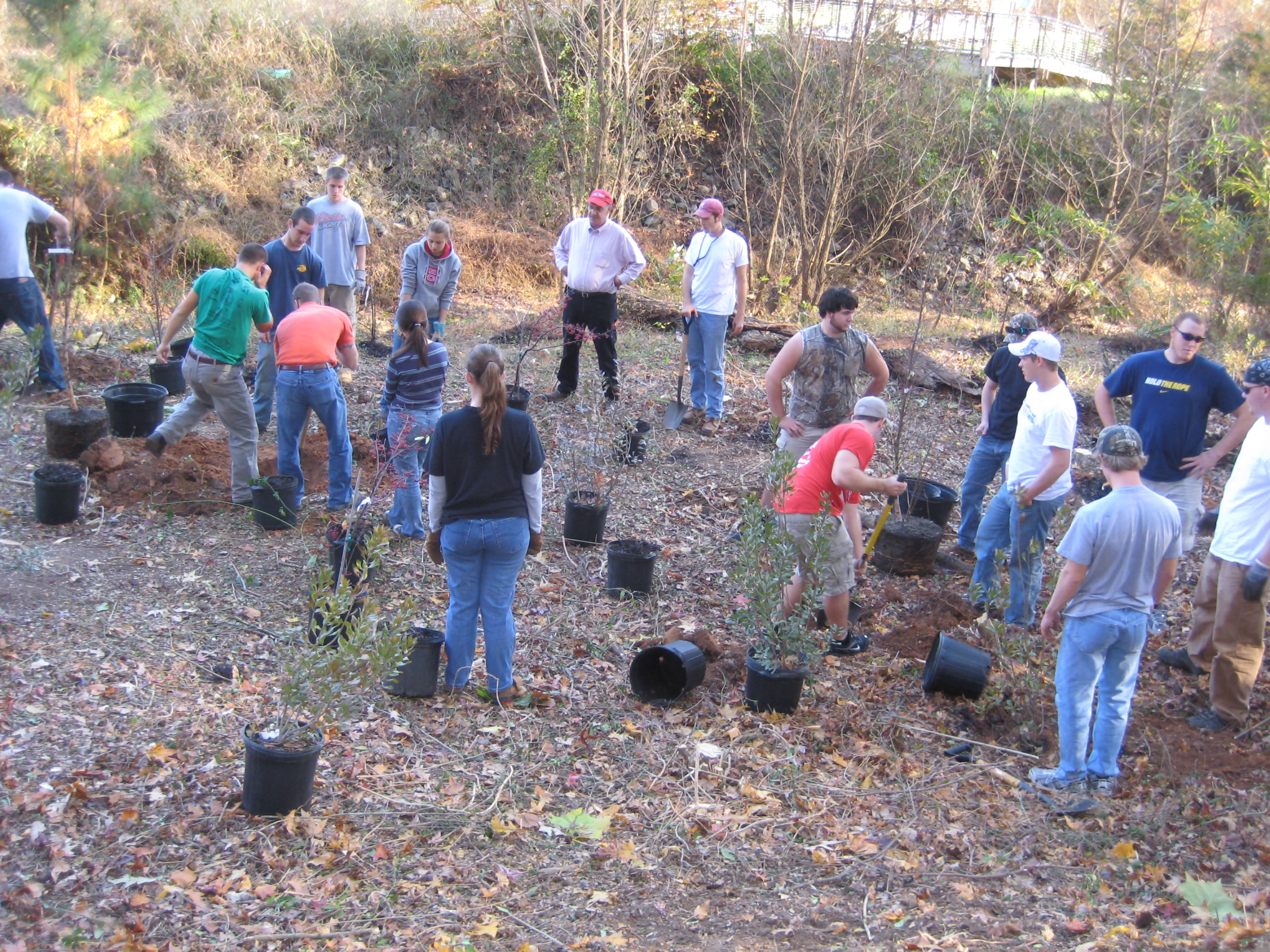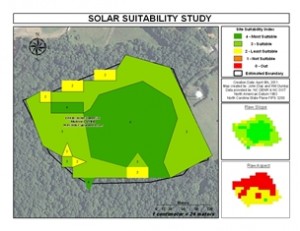
Solar Suitability Study conducted by Will Dunlop and John Diaz at the Department of Environment and Natural Resources.
Energy efficiency and maximizing the use of renewable energy resources is on everyone’s minds these days and NC State University is actively engaged in developing and disseminating solutions to our energy challenges.
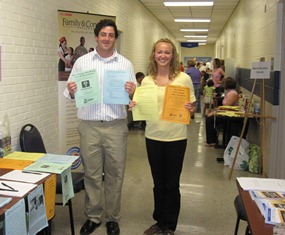
Lauren Lesak and Drew Hatley, interns with the CES in Warren and Franklin Counties, pass out energy conservation and upcoming workshops flyers at a community event.
The College of Natural Resources (CNR) at NC State has placed 42 students in green energy internships and fellowships using a $435,481 American Recovery and Reinvestment Act grant. Students are working in 16 counties in North Carolina for a total of 21 host organizations.
Three fellows began working in Fall 2010. One of the fellows, Helene Cser, is developing a renewable energy database with analysis tools and another, Jessica Knight, is creating the web interface for the database to help facilitate economic growth within the renewable energy industry sector of North Carolina.

Wood pellets are tested for durability in Javon Carter’s feasibility study.
The third fellow, Javon Carter, has been investigating woody biomass material from Eastern North Carolina to determine its suitability for commercialization as wood pellets.
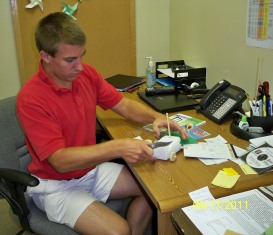
Cory Connell, intern with the CES in Craven County, works on a wind powered car he will make with children at a summer 4-H camp.
Fifteen interns worked part-time during the Spring 2011 semester in the Raleigh area. Among them, Will Dunlop and John Diaz worked at the Department of Environment and Natural Resources (DENR) Division of Waste Management using GIS technology to analyze former landfills for solar farm suitability. Four students worked on a campus tree inventory project designed to calculate the energy savings associated with the trees on campus. Both of these projects have continued into the summer.
This summer, 32 interns are working to promote energy efficiency and assist with small-scale renewable energy installation projects with host organizations such as the NC Cooperative Extension Service (CES), SAS, the NC Solar Center, NC Department of Transportation, HandCrafted Homes and others.
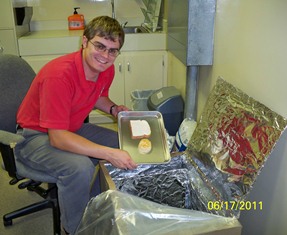
Austin Harriett, CES intern in Craven County, works on a solar powered oven he will make with children at a summer 4-H camp.
Ten students are working with the Cooperative Extension Service in eight different counties—Craven, Davidson, Franklin, Greene, Hertford, Onslow, Warren and Wilson. Interns in these counties are assisting CES’ efforts to educate the community about ways to increase energy efficiency within homes and businesses and integrate renewable energy there as well. Throughout the summer, interns will prepare presentations for a variety of groups including children, seniors, farmers, and low-income families on specific ways that each group can be more energy efficient.
Companies such as SAS, HandCrafted Homes, Timberline, Jordan Lumber and Owens-Illinois are using the energy interns to find ways to make their plants and facilities more energy efficient.
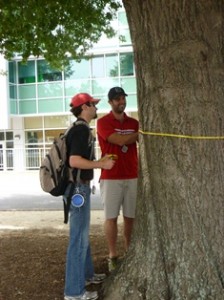
Charles Rudder and Ian McInnis measure a tree for an inventory to determine energy savings gained from campus trees.
The interns were invited to the State’s Sustainable Energy Conference in April that included a session specifically for energy interns. In early June, they were offered a two day Energy Auditor Training on the campus of UNC Chapel Hill at no cost.
CNR student interns are part of a larger state program that includes 28 awarded organizations hosting the energy internship and fellowship program. The program ends in March 2012, by which time some 480 interns and fellows will have worked for the program across the state.
Post submitted by:
Karla Heinen
Dr. Gary Blank
For more information: 919.515.7566
 Sunday, March 11 marked the first time in history that a PGA/GM school has held the Jones and Carolina’s Cup trophies within the same calendar year. On Thursday, ten elite North Carolina State University PGA/GM students trekked 175 miles to Myrtle Beach, S.C., with hopes of ousting the Carolina’s Cup competition on the newly renovated Hackler Course. After his practice round on Friday, senior Alex Kowalski warned that the new greens were firm, tricky, and unresponsive. “It’s gonna make for an interesting couple of days,” he said.
Sunday, March 11 marked the first time in history that a PGA/GM school has held the Jones and Carolina’s Cup trophies within the same calendar year. On Thursday, ten elite North Carolina State University PGA/GM students trekked 175 miles to Myrtle Beach, S.C., with hopes of ousting the Carolina’s Cup competition on the newly renovated Hackler Course. After his practice round on Friday, senior Alex Kowalski warned that the new greens were firm, tricky, and unresponsive. “It’s gonna make for an interesting couple of days,” he said. 


